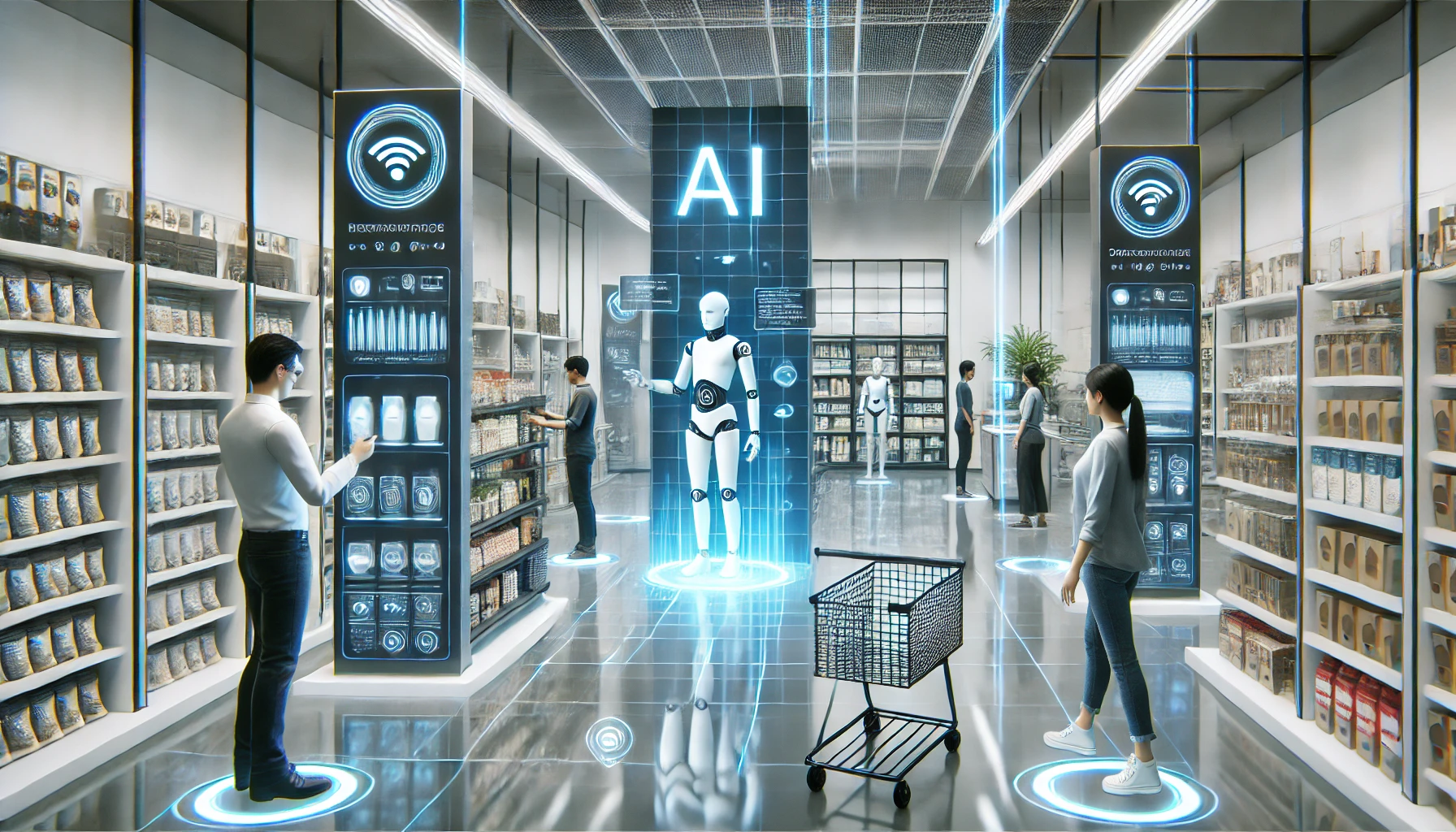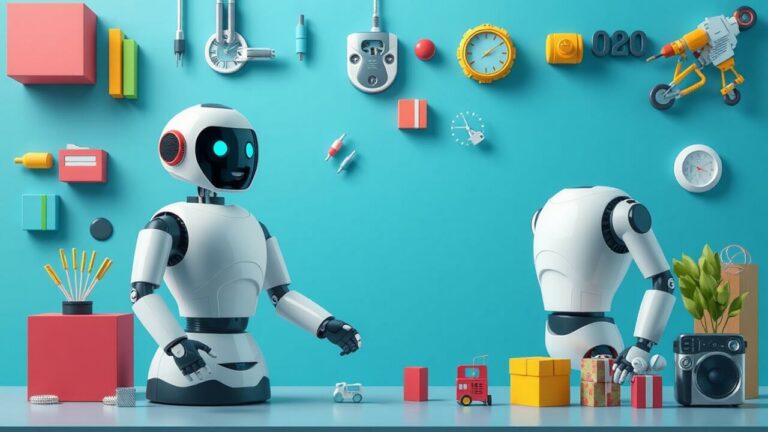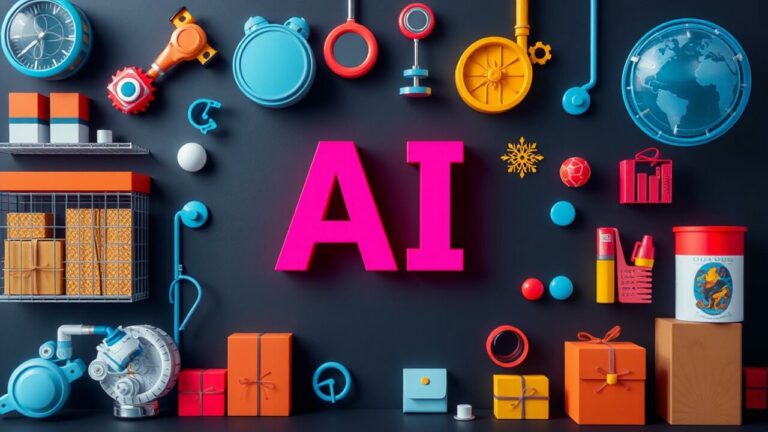What AI Means for the Future of Retail
In recent years, Artificial Intelligence (AI) has rapidly evolved, and its impact on various industries is undeniable. Among these industries, retail stands out as one of the most profoundly affected sectors. From personalized shopping experiences to efficient inventory management, AI is transforming how retailers operate and interact with their customers. In this article, we’ll explore what AI means for the future of retail, highlighting key trends, benefits, and challenges. Let’s dive into the world of AI and retail to understand how these innovations are shaping the industry’s future.
The Rise of AI in Retail
AI’s introduction to the retail industry has brought about a significant shift in how businesses operate. Retailers are leveraging AI technologies to enhance customer experiences, streamline operations, and boost sales. Here are some key areas where AI is making a notable impact:
1. Personalized Shopping Experiences
One of the most visible impacts of AI in retail is the personalization of shopping experiences. AI algorithms analyze customer data, such as browsing history, purchase behavior, and preferences, to deliver personalized product recommendations. This not only improves customer satisfaction but also increases sales and customer loyalty. For example, AI-driven recommendation engines on e-commerce platforms suggest products tailored to individual customers, making shopping more convenient and enjoyable.
2. Inventory Management and Supply Chain Optimization
AI-powered systems are revolutionizing inventory management by predicting demand patterns and optimizing stock levels. This helps retailers reduce overstock and stockouts, ensuring that the right products are available at the right time. Additionally, AI enhances supply chain efficiency by analyzing data to predict disruptions, optimize routes, and improve delivery times. These improvements lead to cost savings and better resource management.
3. Customer Service and Chatbots
AI-powered chatbots and virtual assistants are transforming customer service in retail. These intelligent systems can handle a wide range of customer queries, from product information to order tracking, providing instant support 24/7. By automating routine customer service tasks, retailers can focus on more complex issues, improving overall customer satisfaction. Moreover, AI chatbots can learn from interactions, becoming more effective over time.
4. Fraud Detection and Prevention
AI technologies are also enhancing security in retail by detecting and preventing fraud. Machine learning algorithms analyze transaction data to identify unusual patterns and flag potential fraudulent activities. This helps retailers protect their customers’ data and financial information, building trust and credibility.
5. Visual Search and Image Recognition
Visual search technology powered by AI allows customers to search for products using images instead of keywords. This is particularly useful in fashion and home decor industries, where customers can upload photos to find similar items. AI’s image recognition capabilities also help retailers manage product catalogs and improve the accuracy of search results, enhancing the overall shopping experience.
6. Predictive Analytics for Marketing
AI-driven predictive analytics enable retailers to anticipate customer behavior and preferences, allowing for more targeted marketing campaigns. By analyzing data from various sources, such as social media, website interactions, and purchase history, AI can identify trends and predict future sales. This helps retailers allocate their marketing budget more effectively and achieve better ROI.
The Benefits of AI in Retail
The integration of AI into the retail sector offers numerous benefits, including:
- Enhanced Customer Experiences: AI enables retailers to provide personalized and convenient shopping experiences, increasing customer satisfaction and loyalty.
- Improved Efficiency: Automation of routine tasks and optimization of processes lead to significant cost savings and better resource management.
- Increased Sales: Personalized recommendations and targeted marketing campaigns drive higher conversion rates and sales.
- Better Decision-Making: AI-powered analytics provide retailers with valuable insights, helping them make data-driven decisions.
Challenges and Considerations
While AI presents numerous opportunities for retailers, it also comes with challenges. These include:
- Data Privacy and Security: Retailers must ensure that customer data is collected and used ethically, complying with data protection regulations.
- Implementation Costs: The initial investment in AI technologies can be high, and retailers need to weigh the costs against potential benefits.
- Integration with Existing Systems: Integrating AI with legacy systems can be complex and may require significant changes to existing infrastructure.
- Skill Gaps: Retailers need skilled professionals to develop, implement, and manage AI systems, which can be a challenge given the current talent shortage in AI fields.
The Future of Retail with AI
As we look towards the future, it’s clear that AI will continue to revolutionize the retail industry. AI in retail is not just a trend but a significant shift towards more intelligent, more efficient, and customer-centric operations. Retailers who embrace AI will be better positioned to meet the evolving needs of their customers, stay ahead of the competition, and thrive in an increasingly digital marketplace. Keywords like AI-driven retail solutions, personalized customer experiences, and predictive analytics for retail will become integral to the retail industry’s vocabulary.
Conclusion
AI’s impact on the retail industry is profound and far-reaching. From enhancing customer experiences to optimizing operations, AI is transforming how retailers do business. While there are challenges to overcome, the benefits of AI far outweigh the drawbacks. Retailers who invest in AI technologies will be well-equipped to navigate the future, providing their customers with innovative and personalized shopping experiences.
In conclusion, AI is not just the future of retail; it’s the present. Embracing AI will enable retailers to remain competitive, drive growth, and deliver exceptional value to their customers. The future of retail with AI is bright, and the possibilities are endless.






